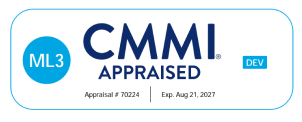Scientific Software

ESI Services
ESI’s software offerings run the gamut, from simple solutions to speed your workflow to highly tailored approaches that address a unique need, such as bridging the gap between computational biology and clinical research. Because our staff are also scientists, we understand those needs (e.g., we know where the bottlenecks occur, where accuracy is paramount, and where data bias might be a problem). Our staff has the scientific and technical know-how to develop software that solves highly complex problems within specialized areas, such as precision medicine. Most importantly, you don’t need to be a coder to use our products. We give you the solutions you need, often with a few clicks of a mouse.
Our software services include:
- Software Development: Designing and developing proprietary software tailored to your needs.
- Software Enhancement: Modifying existing software to better suit your work and to ensure security.
- Quality Assurance: Testing and validating software and ensuring full certification.
- Implementation and Technical Consultation: Launching software applications for large projects and individual tasks.
We approach software development by focusing on three pillars:
- Automate processes: We use tools and AWS services that let us deploy systems with just one click.
- Integrate security: We build in and standardize security right at the beginning, adding regular checks for risks and vulnerabilities throughout the development.
- Facilitate resilient systems: We detect downtime and other system issues early with continuous monitoring. Combined with failover and automatic recovery, our solutions experience little interruption.
As a result, our software solutions launch faster, proactively protect against risks, and stay online longer.
Our software services have also been appraised at a CMMI Maturity Level of 3. CMMI is a process improvement approach that provides organizations with essential elements of effective processes that ultimately improve their performance.

What our CMMI Maturity Level 3 rating means for you:
- We use organizational standards and tailoring to address project and work characteristics.
- Our projects use and contribute to organizational assets.
- We focus on achieving both project and organizational performance objectives.
- We’re dedicated to continuous performance improvement and producing the highest quality of products and services.
ESI Solutions In Action
MAINTAINING RELIABLE ACCESS TO LIFESAVING CANCER PREDICTION TOOL
This medical advancement gained popularity in March 2024 thanks to an endorsement from actress Olivia Munn. In an Instagram post, she credited BCRAT for accurately predicting her cancer, touting it as a lifesaver. Her post sparked a surge in usage that the original infrastructure struggled to handle, leaving users unable to access this vital tool.
As part of our work for NCI, ESI’s development team handles the operations and maintenance of BCRAT, along with updates to the tool’s website and its Cloud hosting infrastructure. When the original infrastructure crashed, we made a quick fix and increased the size of the hosted instance, allowing users to quickly get back into the tool. To avoid further outages, we implemented a serverless architecture to auto scale the CPU instances as the calls increase – essentially the more people who access the tool, the more power the server will use to make the tool available. While this makes managing the increased user base easier, it also significantly saves on hosting costs.